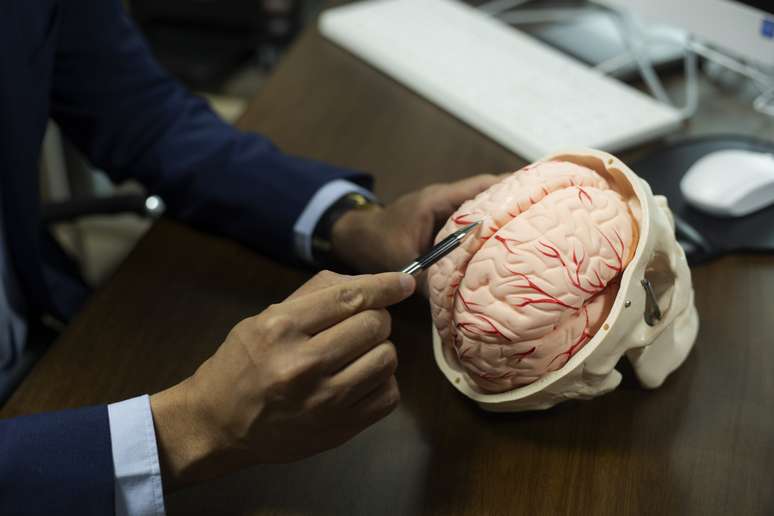Neurosurgeon’s comments on the positive and negative impacts of the observation made by researchers at the University of California
Summary
A recent study published in the scientific journal JAMA Neurology revealed that the human brain increases in size over time, a development linked to greater cognitive reserve, potentially reducing the risk of age-related dementias.
A recent study published in the scientific journal JAMA Neurology revealed that the size of the human brain increases over time. Researchers at the University of California, Davis, USA, found that people born in 1970 have brains that are about 15% larger in surface area and 6.6% larger in volume than those born in 1930, according to MRI analysis.
This change could be associated with greater cognitive reserve, potentially reducing the risk of age-related dementias such as Alzheimer’s disease. Although the number of dementia cases is increasing globally, the incidence of Alzheimer’s has been decreasing since the 1970s, which can be explained by improved brain development over the decades.
The study was conducted on Framingham Heart Study participants born between the 1930s and 1970s, revealing gradual and consistent increases over time in several brain structures. The reasons for this growth include environmental influences as well as genetic factors.
In an interview with Earthneurosurgeon member of the Brazilian Society of Neurosurgery, Philip Mendesexplains that the study results may indicate that this increase in size can be seen as an indication of better long-term brain health.
“But this relationship between human brain size and brain health is a complex topic involving several nuances and factors, including genetics, environment and evolution,” says the expert.
Furthermore, brain health and efficiency also depend on the density of neural connections, brain organization and other functional factors, not just its size.
Regarding the positive or negative impacts on brain function associated with larger brains, the neurosurgeon highlights the following arguments:
Positive impacts
According to the professional, in some contexts, a greater brain volume, especially in specific areas related to memory, reasoning and planning, could be associated with a better performance of these cognitive functions.
The current study also suggests a potential decreased risk of dementia, including Alzheimer’s, likely due to a more robust brain structure and a greater ability to compensate for neuronal losses.
Negative impacts
Mendes explains that there are pathological conditions in which increasing brain volume is not beneficial, such as in cases of hydrocephalus, where increased intracranial pressure can lead to serious brain damage.
In addition to what is highlighted by the study, the doctor underlines that it is essential to consider the importance of brain plasticity and mental health. Brain size is just one of many factors that contribute to brain health.
“Aspects such as the quality of neural connections, the brain’s ability to adapt to new learning and challenges, emotional and mental well-being are equally crucial for a healthy and fulfilling life,” he concludes.
Source: Terra
Ben Stock is a lifestyle journalist and author at Gossipify. He writes about topics such as health, wellness, travel, food and home decor. He provides practical advice and inspiration to improve well-being, keeps readers up to date with latest lifestyle news and trends, known for his engaging writing style, in-depth analysis and unique perspectives.








![Un Si Grand Soleil Preview: Episode Summary for Monday, October 27, 2025 [SPOILERS] Un Si Grand Soleil Preview: Episode Summary for Monday, October 27, 2025 [SPOILERS]](https://fr.web.img4.acsta.net/img/16/ec/16ecdc89ab22d2242ca3490a29003c5c.jpg)
